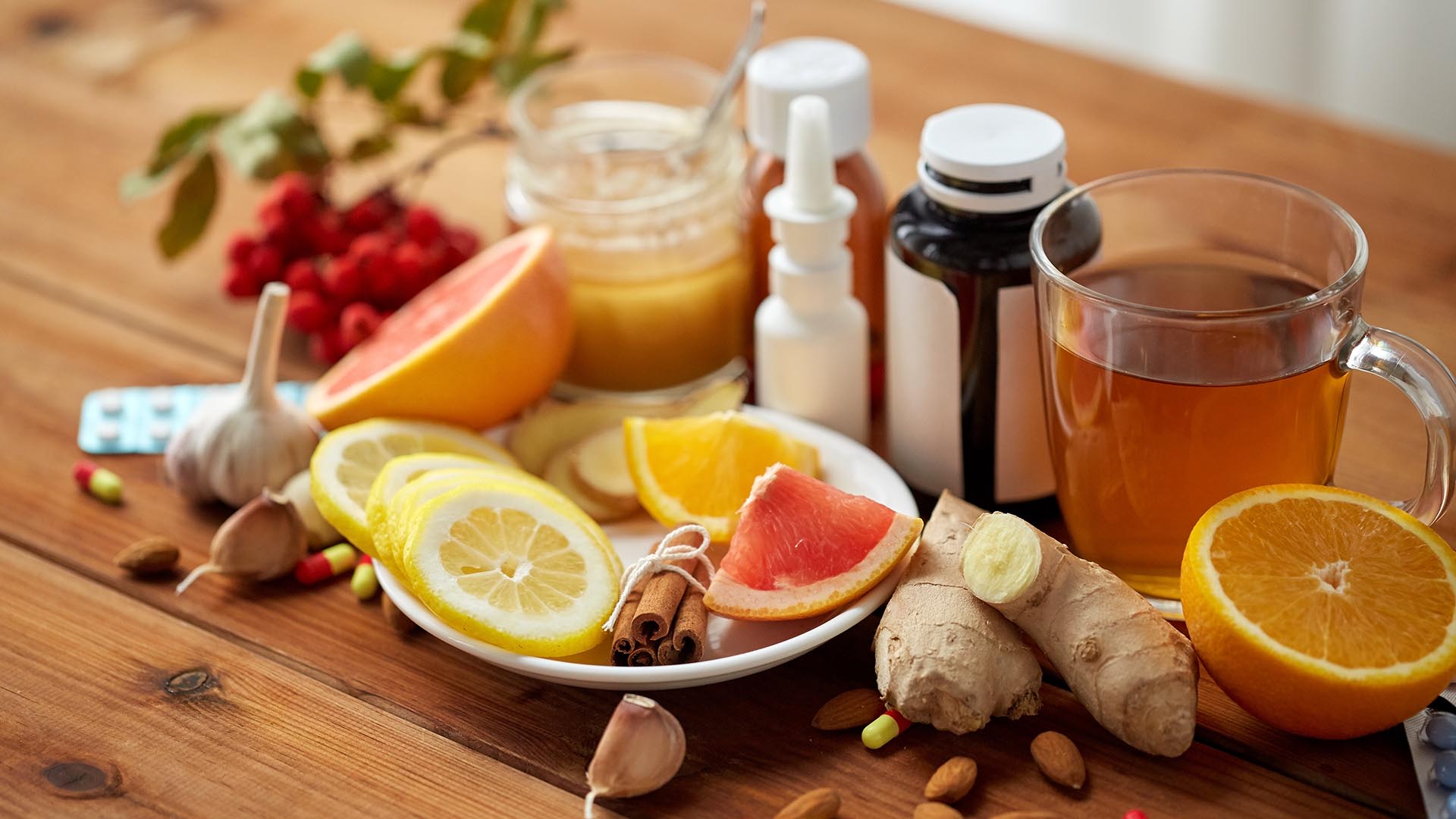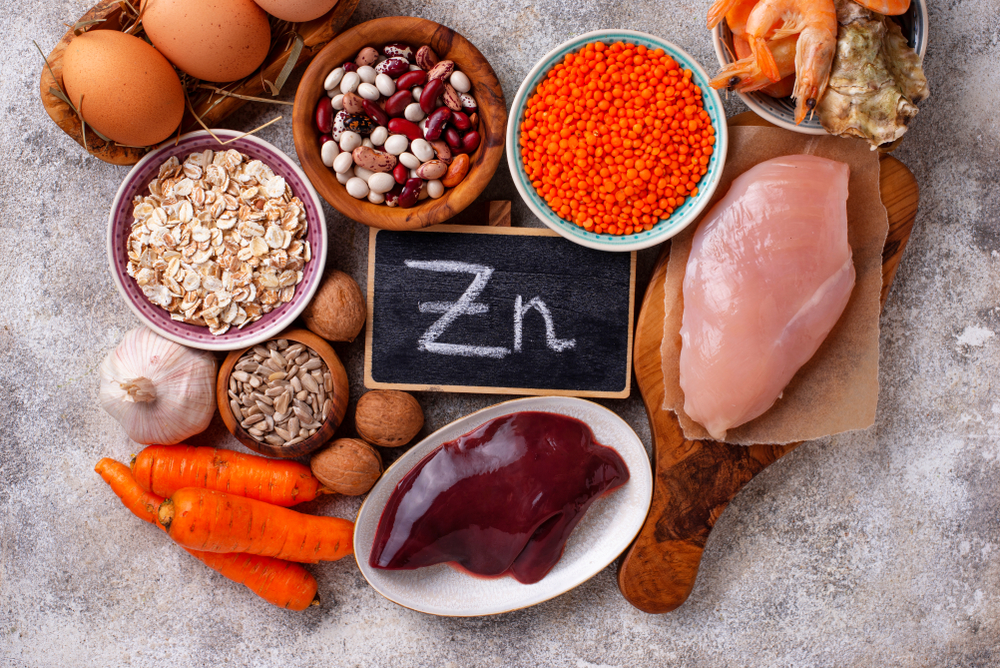Cold season: health tips and herbal remedies
With so many viruses flying around, stay healthy the natural way this winter.

With the country facing a “tripledemic” and many stores running low on cold medications, it feels like half the country is under the weather just now. Kelsey Asplin, affiliate professor in Metropolitan State University of Denver’s Integrative Health Care Program, has great tips for naturally boosting your immune system and some herbal remedies in case you do get sick.
Look after the fundamentals…
As a naturopathic doctor, I like to look at the whole picture. These following three elements are the critical foundations of your general health and are especially important in winter.
Stay hydrated.
Hydration is really important just now. People don’t realize that you lose more water in winter than in summer, simply because your body uses more of it to keep you warm. (Just think: When you can see your breath in freezing weather, that’s moisture.) But we need to remind ourselves to still keep drinking water in cold weather because we lose our natural craving for it. Bolster your intake with hydrating herbal teas — I particularly recommend ginger and chamomile — which are great for your system and also have medicinal benefits. (However, try to avoid caffeine drinks as they can be a little bit dehydrating.)
Enjoy a hearty seasonal diet.
People tend to think on a macro level: I want to work; travel; snowboard; go on vacation. But we don’t often consider how, on a micro level, doing any of those things depends on maintaining an ability to function well, through a balanced diet. Winter is a great time to lean into healthy and delicious seasonal dishes, such as stews, soups and bone broths. I find there are so many good food options in the colder months: Root vegetables are full of goodness; lentils and beans are high-fiber and nutritious; and pungent staples such as garlic, ginger and onion include lots of super-positive benefits.

Look out for your mental health.
Humans like to go against Mother Nature. While everything else in the natural world literally slows down at this time of year — animals hibernate; plants stop growing — we continue at stressful full speed. (In fact, many people see the cold weather as a sign that they should hunker down and do more work.) But it’s important to follow your natural inclination to slow down — otherwise, your body may well make you slow down, with a cold or flu bout. During winter, take more time to rest and sleep and maybe occasionally take a day off to restore your mental health. Ideally, find some ritual you love — whether that’s a book on the sofa, a warm bath or a winter run — and lean into it.
How to boost your immune system.
Elderberry
This wonder berry is packed with antioxidants and vitamins to help boost your immune system, and there are bundles of research testifying to its effectiveness. It’s great at guarding against flu and cold symptoms, which is especially good news for those who just know they will get sick with a cold every year. Use it during the winter months for extra immunity protection — you can buy it as a syrup, a supplement or gummies. Personally, I like to add a spoonful of concentrate to sparkling water because it makes a delicious drink.
Vitamin C
This is a major player in helping keep the winter bugs at bay, which offers great protection against colds and flu. And the good news is that you don’t need to stick to supplements to get your fix. There are lots of yummy winter recipes featuring ingredients such as kale and broccoli that are packed with this healthy vitamin.
RELATED: Better ingredients for better health
Vitamin D
During winter, many of us don’t spend enough time outside to naturally get enough vitamin D, but we are still using it. And any deficiency in this vital vitamin causes our mood to drop, which in turn can affect our immune response and lead to illness. Vitamin D supplements can help you stay healthy, provided they’re taken safely at a proper dosage.
Zinc
Zinc is a fantastic supplement that boosts immunity and could help shorten the duration of your cold or flu symptoms. But it’s best to speak to a doctor or health professional before using it, since an excessive dosage can cause unwelcome issues such as stomach cramps or nausea.

Natural (and effective) cold remedies.
From a naturopathic perspective, the best strategy for effectively tackling bugs is to act immediately at the first signs of sickness. Do not wait and try to tough it out — I can’t stress this enough. Unless you start treatment when symptoms first show, you will, to a certain extent, always be playing catch-up with your ailment.
Quercetin (cold and flu)
This fabulous flavonoid is found in various fruits and vegetables but especially in apples and onions. Recent studies have shown it’s effective in tackling Covid and cold symptoms, but — another big bonus — it also stabilizes the cells that release histamine in the body, meaning it has an anti-inflammatory and antihistamine effect. I use several products that contain this ingredient in my role as a naturopathic doctor, and it’s really helpful.
RELATED: 8 tips to combat Seasonal Affective Disorder
Thyme (respiratory or nasal infections)
Thyme inhalation is a marvelous solution if you’re suffering from any kind of respiratory or nasal infection (just be careful not to get any on your skin). Here’s my advice: Prepare a hot shower in a steamy hot bathroom; flick the thyme water at the wall of your shower two or three times; then get under the water spray and breathe in the steam. The active thyme will quickly kill the bugs causing the infection and make it easier to breathe.
The ‘warming socks’ treatment (congestion)
People think I’m crazy when I suggest this old-time naturopathic treatment for congestion, but it really works. Before you go to bed, rinse some thin cotton socks in very cold water, then take a deep breath and put them on. (Hardy people even put them in the freezer for a few minutes.) Next, put some thick wool socks on over the top and then get into bed. Here’s what happens: Your body, realizing that your feet are cold, sends warm blood coursing down that way (where handily, the thick socks are already insulating and drying your feet). But here’s the clever part: Congestion is caused by increased blood flow. So tricking the body into sending blood racing down the legs helps clear things up at the top and ease the congestive symptoms. It’s simple but incredibly clever.






